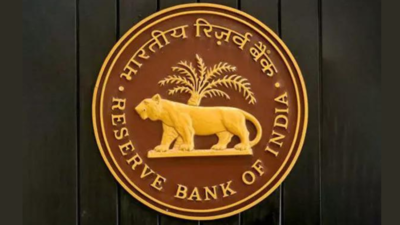In a move to enhance transparency and borrower flexibility, the Reserve Bank of India (RBI) has barred banks and other regulated lenders from imposing pre-payment charges on floating rate loans availed by individuals for non-business purposes. The new norms, issued under the Reserve Bank of India (Pre-payment Charges on Loans) Directions, 2025, will be applicable to all loans and advances sanctioned or renewed on or after January 1, 2026, as per news agency ANI.This sweeping directive will apply across commercial banks (excluding payment banks), co-operative banks, Non-Banking Financial Companies (NBFCs), and All India Financial Institutions. The exemption from pre-payment penalties applies irrespective of the loan being repaid fully or partially, regardless of the source of funds used. It also covers loans with or without co-obligants.According to the RBI, “No pre-payment charges shall be levied on floating rate loans taken by individuals for non-business purposes,” adding that this applies even to dual or special rate loans, if the loan is on a floating rate at the time of repayment. There is no minimum lock-in period for availing this benefit.The RBI said it exercised its powers under Sections 21, 35A and 56 of the Banking Regulation Act, 1949; Sections 45JA, 45L and 45M of the RBI Act, 1934; and Section 30A of the National Housing Bank Act, 1987 to issue these directions. The central bank added that the move consolidates earlier circulars on foreclosure and pre-payment, creating a single, comprehensive framework.In cases where pre-payment charges are applicable—such as fixed-rate loans or those not covered under the new norms—the charges must be clearly disclosed in the sanction letter and loan agreement. “If a Key Facts Statement (KFS) is applicable, these charges must also be disclosed there. No undisclosed or retrospective charges will be allowed,” the RBI said. Additionally, no charge can be levied if the pre-payment is initiated by the lender.The RBI observed that certain lenders had been including restrictive clauses in loan agreements to discourage customers from switching to other lenders offering more favourable terms. The new rules are aimed at correcting such practices and enhancing consumer trust.
Trending
- Sugar sector milestone: Industry hits Rs 1.3 lakh crore mark; Union minister Pralhad Joshi says growth fuels rural prosperity & energy security
- India-US trade deal: What’s the deadlock about? Top issues blocking agreement as Donald Trump’s 26% tariff deadline looms
- ITR filing: Why are ITR-2 and ITR-3 forms still not available on Income Tax e-filing portal? Top reasons explained
- Startup IPO rush: Rs 18,000 crore worth of fresh issues lined up; Meesho, PhysicsWallah among top raisers
- New Reliance Consumer Products Ltd: Mukesh Ambani-led RIL to group all its FMCG brands under new company; IPO plans in works
- Sharp contrast! How Swiggy & Eternal, India’s top e-commerce stocks, are outshining Chinese counterparts – explained
- RBI lending directive: No more pre-payment charges; borrowers to get freedom from 2026 | India Business News
- Gold & silver price prediction today: Will gold rate test Rs 99,000 mark soon – what’s the outlook and should you buy or sell?
- Top stocks to buy today: Stock recommendations for July 3, 2025 – check list
- RBI bans fine for pre-paying some biz loans

